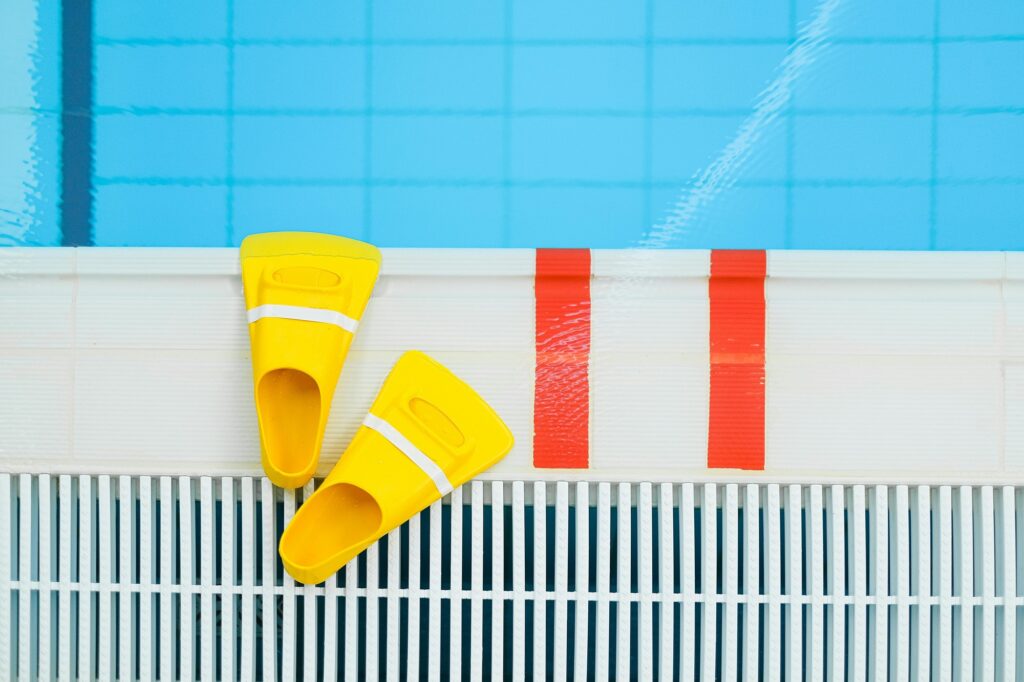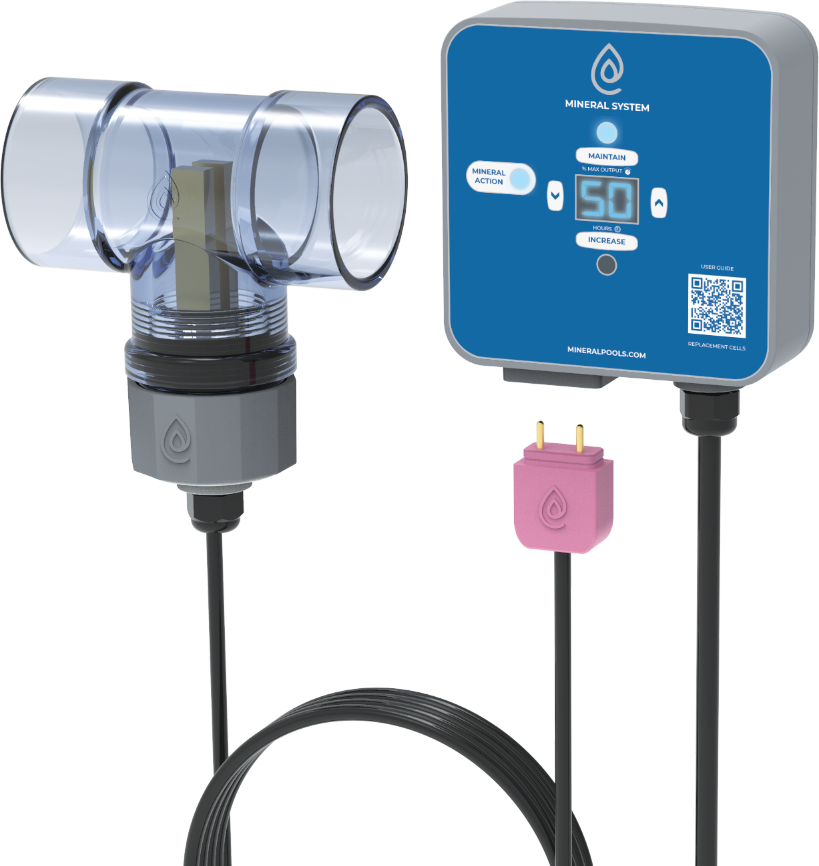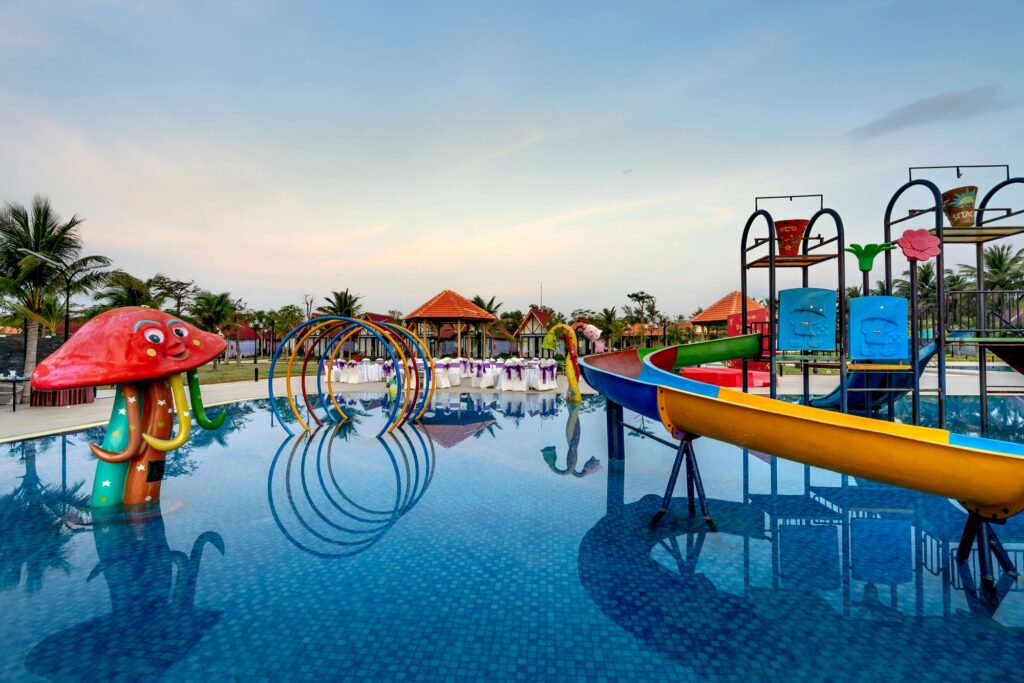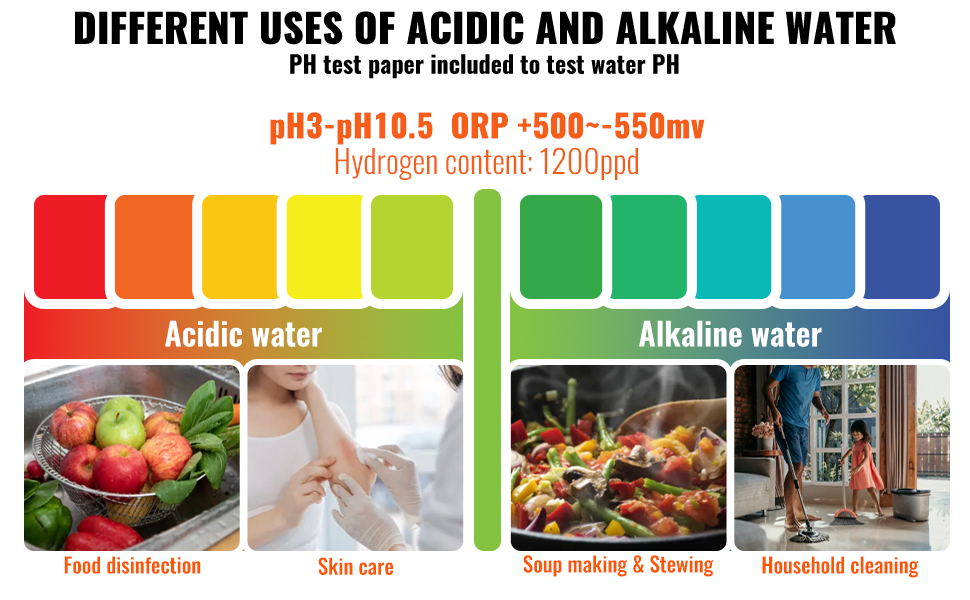
Water ionization is a revolutionary process that enhances water quality by introducing positively charged ions into the water. This chemical-free solution effectively combats harmful microorganisms, algae, and bacteria while reducing the need for traditional chemicals. Here, we delve into the mechanics, benefits, and applications of this technology.
How Does Water Ionization Work?
Water ionization is a sophisticated process that uses advanced technology to enhance water quality. By employing an electric current, ionization systems release metal ions—typically copper, silver, and zinc—into the water. These ions act as natural sanitizers, neutralizing harmful microorganisms and impurities without the need for harsh chemicals.
Step-by-Step Process
- Electric Charge Activation
A low-voltage current is sent through specially designed electrodes composed of metals such as copper, silver, or zinc. This current energizes the electrodes, causing them to release positively charged ions into the surrounding water. - Ion Release
The electric current initiates the controlled release of ions into the water. The type and quantity of ions introduced are carefully managed to ensure safe and effective sanitization while maintaining water balance. - Ion Interaction
Once in the water, these positively charged ions seek out negatively charged particles, including algae, bacteria, and other contaminants. Through a process called electrostatic attraction, the ions disrupt the cellular structure of microorganisms, rendering them inactive or destroying them entirely. - Filtration
Neutralized microorganisms and debris clump together, forming larger particles that are easily captured by the pool’s filtration system. This ensures clear, clean water free from visible impurities.
The Key Players: Copper, Silver, and Zinc
Each metal ion plays a distinct role in the ionization process, contributing to a holistic approach to water sanitation:
- Copper Ions
Copper ions are highly effective in preventing algae growth. They inhibit the reproductive processes of algae, ensuring it cannot form colonies or spread throughout the water. This makes copper ions essential for maintaining a crystal-clear pool. - Silver Ions
Known for their antimicrobial properties, silver ions are particularly effective against bacteria and viruses. They penetrate microbial cell walls, disrupting their metabolic processes and ensuring a safer swimming environment. - Zinc Ions
Zinc ions contribute to water stability by reducing corrosion in pool components, such as pipes and pumps. They also assist in maintaining balanced water chemistry, making it easier to regulate pH levels and prevent scaling.
Together, these ions create a synergistic effect, offering a powerful yet gentle approach to water sanitation that minimizes the need for traditional chemicals.

Benefits of Water Ionization
Water ionization offers a host of advantages, making it a standout choice for water treatment in pools, spas, and other water systems. Its unique approach to sanitation delivers long-term benefits for both users and the environment.
Chemical-Free Sanitation
Water ionization significantly reduces the need for chlorine, bromine, and other harsh chemicals traditionally used in pool maintenance. This creates a safer swimming environment, especially for those with sensitive skin or allergies. Unlike chemical sanitizers, ionized water is gentle on the skin and eyes, reducing irritation and dryness. Additionally, the absence of strong chemical odours enhances the overall swimming experience.
Environmentally Friendly
Ionizers are an eco-conscious solution for water sanitation. By minimizing the use of chemicals, they reduce harmful runoff into the soil and waterways, protecting aquatic ecosystems and drinking water sources. Furthermore, the reduced reliance on chemical manufacturing and transportation lowers the carbon footprint of pool maintenance.
Cost Savings
While the upfront cost of installing an ionizer may appear significant, the long-term financial benefits outweigh the initial investment. With less reliance on expensive chemicals and reduced wear on pool components from chemical exposure, maintenance costs are significantly lowered. Over time, pool owners can save hundreds of dollars annually, making ionization an economical choice.
Improved Water Quality
Ionized water is renowned for its superior quality. It remains consistently clear, free of unpleasant odours, and has a silky texture that feels gentle on the skin. This improved water quality enhances the overall swimming experience, providing a luxurious and refreshing feel that traditional chemical treatments often fail to achieve.
pH Stability
Maintaining balanced pH levels is crucial for pool water health and equipment longevity. Ionized water naturally resists rapid fluctuations in pH, reducing the need for frequent adjustments. This stability simplifies pool management, saving time and effort for pool owners while preserving the structural integrity of the pool.
Reduced Chlorine Byproducts
Chlorine-based treatments can produce harmful byproducts like chloramines, which contribute to strong chemical odours, skin irritation, and respiratory issues. Ionizers minimize these byproducts, creating a healthier and more enjoyable swimming environment for all users.
Extended Equipment Lifespan
By reducing chemical exposure, ionized water helps protect pool equipment from corrosion and scaling. Pumps, filters, and other components experience less wear and tear, leading to fewer repairs and replacements over time. This added longevity further contributes to the cost-effectiveness of water ionization systems.

Common Misconceptions About Water Ionization
“Ionizers Completely Eliminate Chlorine”
One common misunderstanding is that ionizers entirely replace chlorine or other sanitizing agents. While ionizers significantly reduce the need for chlorine, a small amount is still necessary for oxidizing organic matter such as oils, sweat, and debris introduced by swimmers. This combination creates a balanced and efficient system that provides cleaner water with much lower chlorine levels, reducing the risk of irritation and unpleasant odours associated with traditional pool maintenance.
“Ionized Water Is Unsafe”
Another prevalent misconception is that ionized water poses health risks. In reality, certified ionization systems undergo stringent testing to meet safety standards. The ion concentrations they release are carefully controlled and fall well below the thresholds set by organizations like the Environmental Protection Agency (EPA) and the World Health Organization (WHO). Additionally, the ions used, such as copper and silver, are naturally occurring elements known for their antimicrobial properties, making them a safe and effective choice for water sanitation.
“Ionization Systems Are High Maintenance”
Some believe that maintaining an ionization system is overly complicated or time-consuming. However, these systems are designed for ease of use. Regular maintenance typically involves simple tasks like cleaning the electrodes to prevent buildup and checking ion concentration levels using test kits. Modern ionization systems often come equipped with user-friendly displays or automated features that make monitoring and adjustments straightforward. With proper care, these systems can operate efficiently with minimal effort, saving time compared to the frequent chemical balancing required with traditional methods.
“Ionizers Are Ineffective in Large Pools”
Many assume that ionizers only work well in small or residential pools. However, commercial-grade ionization systems are specifically designed to handle large-scale water volumes, including public pools, resorts, and even waterparks. These systems are scalable and capable of providing consistent and reliable sanitation, making them suitable for a wide range of applications.
“Ionization Is a New and Unproven Technology”
Some skeptics view ionization as a modern or experimental solution. In reality, the science behind ionization has been around for decades and is backed by extensive research. Copper and silver have been used for water sanitation for centuries, and ionization technology has been successfully implemented in various industries, including healthcare and aerospace, to ensure water purity.
“Ionizers Make the Water Metallic or Cloudy”
There is a misconception that introducing metal ions into the water can cause a metallic taste or make the water appear cloudy. Properly functioning ionizers release ions in such low concentrations that they do not affect the taste, colour, or clarity of the water. When maintained correctly, ionized water remains crystal clear and refreshing.
Applications of Water Ionization
Swimming Pools and Spas
Ionization is widely used in pools and spas for chemical-free sanitation, offering a comfortable and eco-friendly experience.
Drinking Water Treatment
Ionized water is valued for its alkalinity and antioxidant properties, making it a popular choice for improving drinking water quality.
Agriculture and Irrigation
In farming, ionized water enhances plant health, reduces the need for pesticides, and improves crop yields.
Healthcare and Sterilization
Hospitals and clinics use ionized water for sterilizing medical equipment and maintaining hygienic environments.

Maintenance Tips for Ionizers
To ensure your ionization system operates effectively and lasts for years, regular maintenance is essential. Here are some detailed tips to keep your system in top condition:
1. Regular Cleaning of Electrodes
Over time, mineral deposits and scale can accumulate on the electrodes, reducing their efficiency in releasing ions into the water. To prevent this buildup, clean the electrodes regularly using a cleaning solution recommended by the manufacturer. For heavily scaled electrodes, gentle scrubbing with a soft brush may help. Regular cleaning not only enhances performance but also extends the lifespan of the electrodes.
2. Monitor Ion Levels
Consistently monitoring the ion concentrations in your water is crucial for maintaining proper sanitation. Use a reliable test kit to measure the levels of copper, silver, and zinc ions. Keeping these concentrations within the manufacturer’s suggested ranges ensures the water remains safe, clear, and free from contaminants. Automated ionizers with built-in sensors can simplify this process by providing real-time ion level readings.
3. Inspect System Components
Routine checks of the ionizer’s components are necessary to ensure smooth operation. Inspect electrical connections for signs of wear, corrosion, or loose wiring. Verify that the control unit is properly calibrated and functioning as intended. Regular inspections help identify potential issues early, preventing costly repairs or downtime.
4. Supplement with Minimal Chlorine (If Needed)
Although ionizers significantly reduce the need for chlorine, occasional supplementation may be necessary, particularly during periods of heavy pool use or when organic debris like leaves and oils accumulate. Adding a small dose of chlorine helps oxidize organic matter, working in harmony with the ionizer to maintain water clarity and sanitation.
5. Replace Worn Electrodes
Electrodes have a finite lifespan and will gradually wear out over time due to continuous use. Refer to your system’s user manual to determine the recommended replacement schedule. Replacing worn electrodes promptly ensures consistent ion production and optimal performance.
6. Balance Water Chemistry
Maintaining balanced water chemistry, including pH, alkalinity, and calcium hardness, is essential for the ionizer to function efficiently. Unbalanced water can lead to scaling, corrosion, or reduced ionization effectiveness. Regularly test and adjust your pool’s chemistry to create a stable environment for the ionizer to work effectively.
7. Winterize the System (If Applicable)
For pools in colder climates, proper winterization of the ionizer is vital. Before shutting down the system for the winter, thoroughly clean the electrodes, drain any remaining water from the unit, and store it in a dry, temperature-controlled environment. Proper winterization prevents damage caused by freezing temperatures and ensures a smooth start-up in the spring.
Addressing Skepticism: Why Some Professionals Hesitate
Some pool service providers and stores may hesitate to promote ionizers due to their reduced reliance on traditional chemicals. Since many businesses profit from chemical sales, ionizers might be viewed as a financial threat. Additionally, improper system maintenance by users can lead to dissatisfaction, reinforcing skepticism about the technology.
Educating pool owners about proper ionizer use and maintenance can help dispel these doubts and encourage wider adoption of this innovative solution.
Why Choose Water Ionization for Your Pool?
Water ionization is more than just a modern alternative to traditional pool sanitation—it’s a revolutionary approach to maintaining cleaner, safer, and more sustainable water. Here’s why it stands out:
Reduced Chemical Dependency
With ionization, you can significantly cut back on harsh chemicals like chlorine and bromine. This creates a safer swimming environment for people with sensitive skin or allergies while also reducing the chemical odours often associated with pools.
Sustainability
Ionizers are environmentally friendly because they minimize the release of chemical byproducts into the environment. This is especially beneficial for eco-conscious pool owners who want to reduce their carbon footprint.
Long-Term Cost Savings
While the initial investment in an ionizer may seem substantial, the long-term savings on chemical purchases, maintenance, and equipment longevity make it a cost-effective solution.
Enhanced Water Quality
Ionized water is not only sanitized but also clear, odourless, and gentle on swimmers. This improved water quality ensures a more enjoyable swimming experience for everyone.
Ease of Maintenance
With simple tasks like occasional electrode cleaning and ion level checks, maintaining an ionizer is straightforward. Automated systems make the process even more user-friendly, requiring minimal effort from pool owners.
Stable Water Chemistry
Ionized water resists rapid changes in pH and alkalinity, simplifying pool management and reducing the need for frequent adjustments.
By combining advanced technology with natural sanitization, water ionization offers an ideal solution for those seeking a healthier, more sustainable way to maintain their pools. It’s a choice that benefits not only pool owners but also the environment—a true win-win.


